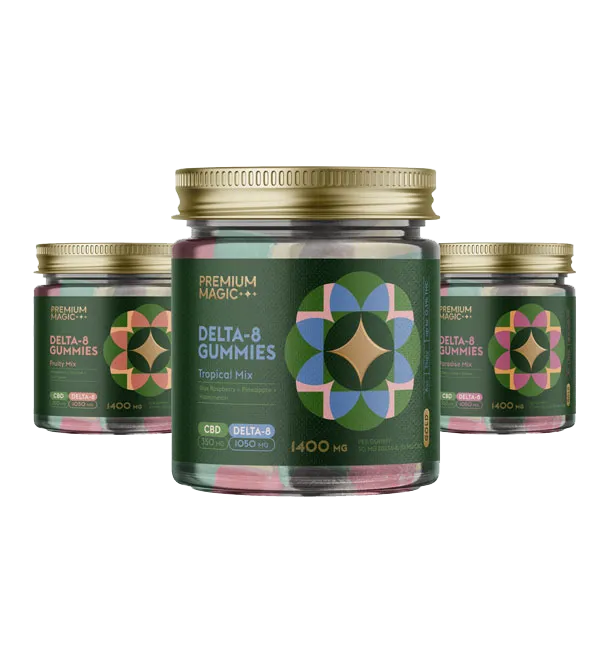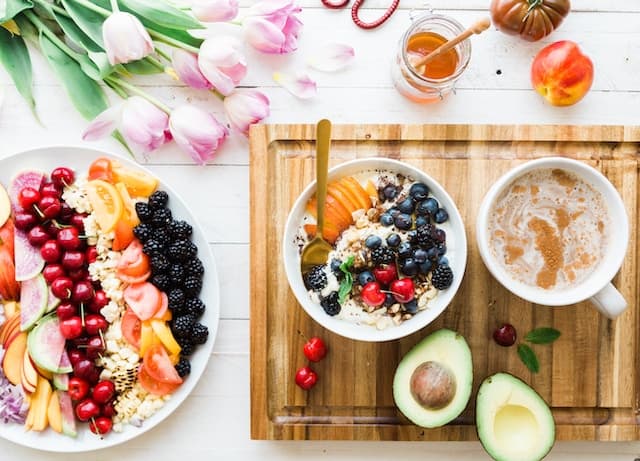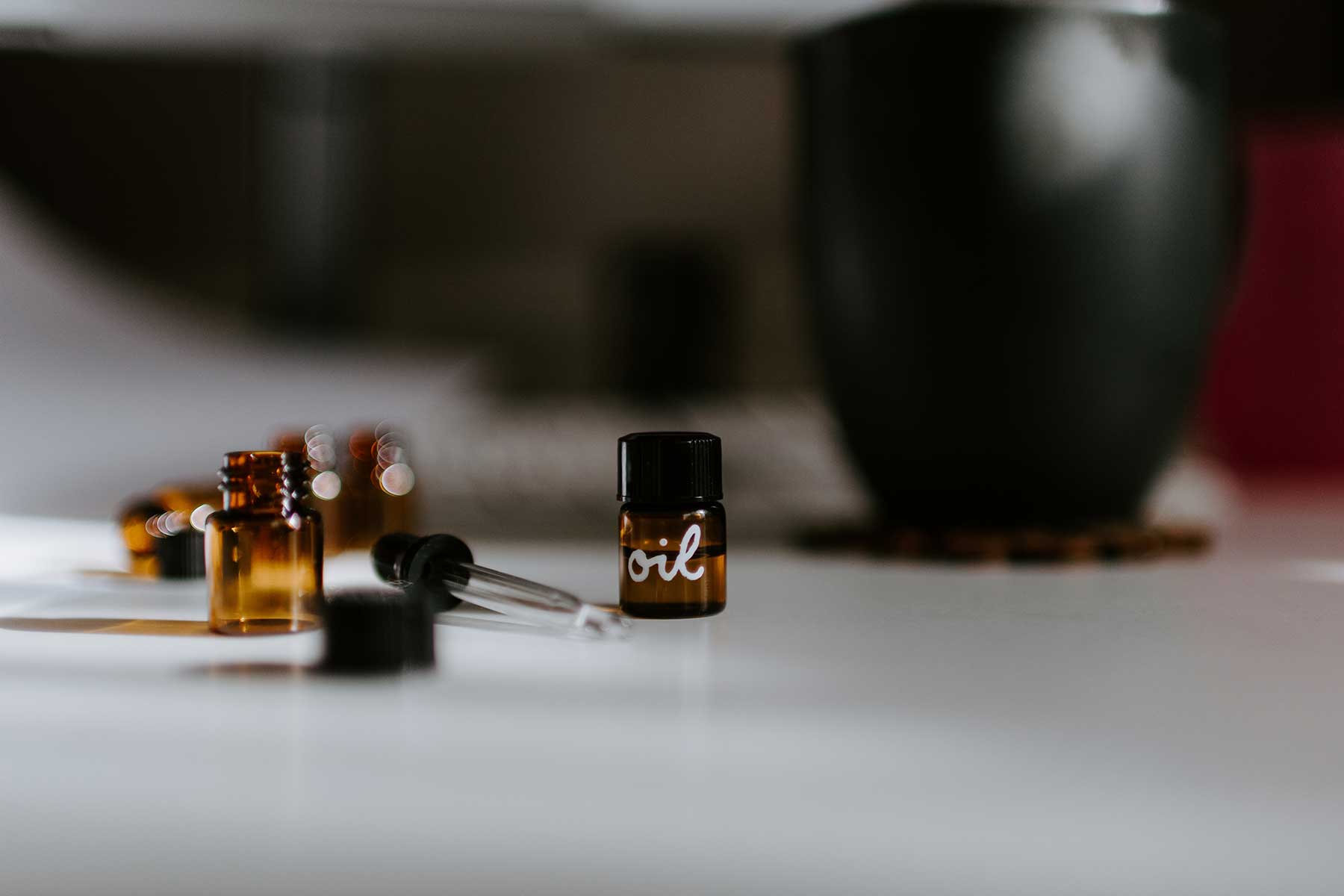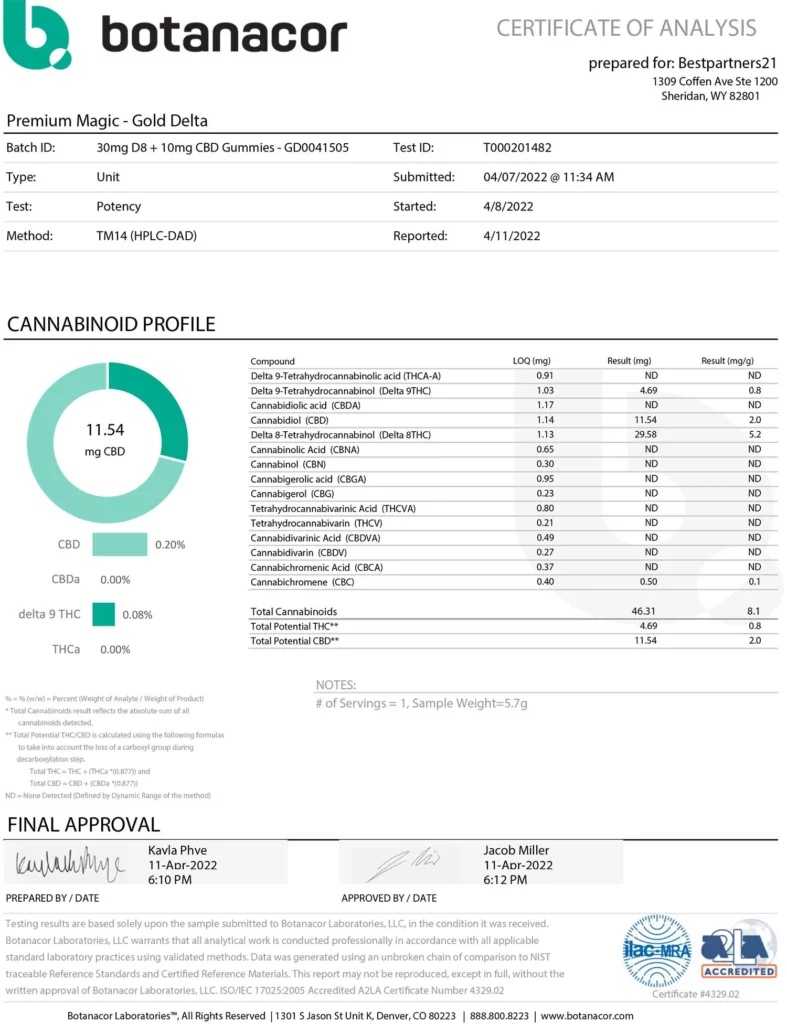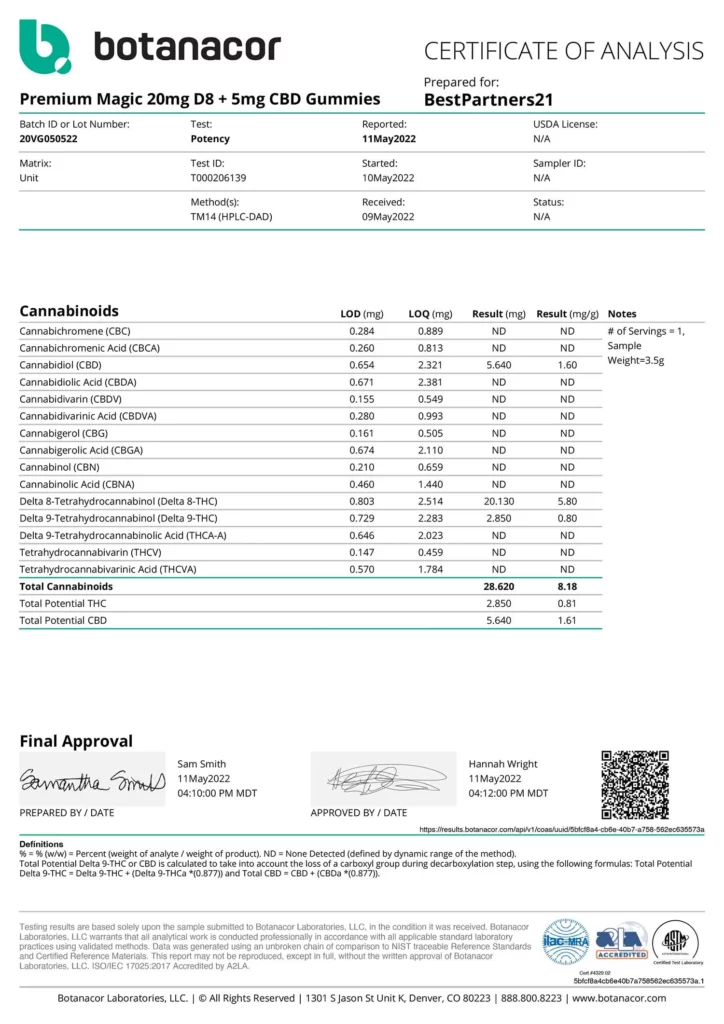
The Surprising Benefits of Herbal Teas for Stress Relief

Welcome to our blog, where we’re about to dive into the soothing world of herbal teas and how they can help you beat stress. Life can get overwhelming, and that’s where herbal teas come to the rescue. In this article, we’ll show you just how these humble brews can be your best buddies when it comes to managing stress.
So, grab a comfy chair, a cup of your favorite herbal tea, and let’s explore the surprisingly wonderful ways in which herbal teas can bring calm and peace to your life.
What Are Herbal Teas?
Before we delve into the stress-busting wonders of herbal teas, let’s clarify what exactly herbal teas are. Unlike regular tea made from tea leaves (like black, green, or oolong), herbal teas are brewed from various plant parts, excluding tea leaves. This distinction means they’re technically not true teas, but rather, “infusions” or “tisanes.”
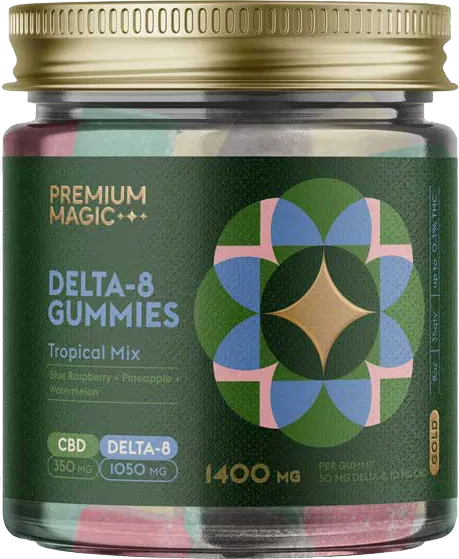
Delta-8 Gummies – Gold Tropical Mix
Original price was: $82.99.$39.99Current price is: $39.99.
Or Subscribe and Save 30%
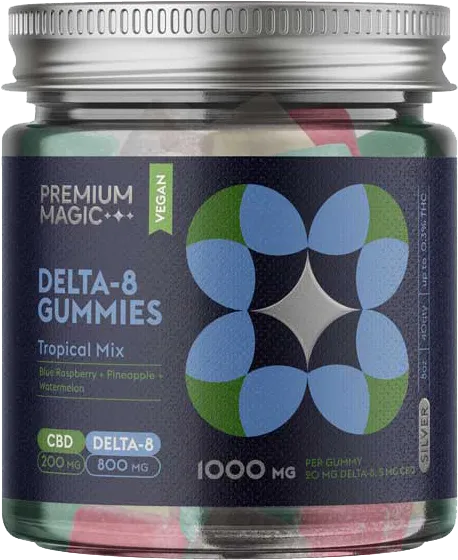
Silver Tropical Mix
Original price was: $68.99.$33.99Current price is: $33.99.
Or Subscribe and Save 30%
Common Herbal Tea Ingredients
Herbal teas are incredibly diverse, and their flavors and benefits come from an array of plant sources. Here are some common herbal tea ingredients:
- Chamomile: Known for its mild, apple-like flavor, chamomile tea is renowned for its soothing properties. It’s perfect for winding down after a hectic day.
- Peppermint: If you crave a refreshing, minty taste, peppermint tea is a go-to choice. It can also help with digestion, which can be affected by stress.
- Lavender: Lavender tea not only offers a calming aroma but also helps ease anxiety and promote relaxation. A cup before bedtime can lead to sweeter dreams.
- Ginger: This spicy root lends its zesty flavor to ginger tea, which is not only delicious but also great for settling an upset stomach, a common symptom of stress.
- Lemon Balm: With a lemony scent and mild citrus taste, lemon balm tea can help reduce stress and improve your mood.
- Valerian Root: Often used as a natural remedy for insomnia, valerian root tea can be a useful ally when stress keeps you up at night.
Types of Herbal Teas for Stress Relief
When it comes to managing stress, herbal teas are like an assorted box of soothing remedies. Here, we’ll explore some popular herbal teas that have proven stress-relief properties, each with its own unique flavor and potential to calm your nerves.
Chamomile Tea
Floral Comfort: Chamomile tea is like a warm hug in a cup. It’s well-known for its gentle, floral flavor and its ability to reduce anxiety and promote relaxation. Sipping on a cup of chamomile tea before bedtime can be especially effective in helping you unwind and enjoy a restful sleep.
Lavender Tea
Aromatic Tranquility: Lavender isn’t just for sachets; it makes a delightful tea too. Lavender tea carries the soothing aroma of the lavender plant, which is known to calm the mind and reduce stress. A cup of lavender tea can transport you to a state of tranquility, making it an excellent choice for stressful days.
Peppermint Tea
Minty Fresh Relief: If you’re looking for a refreshing and invigorating way to beat stress, peppermint tea is your answer. Its minty flavor not only perks you up but also helps relieve tension and relax your muscles. Plus, it aids in digestion, which can be impacted by stress.
Lemon Balm Tea
Zesty Serenity: Lemon balm tea combines a hint of citrus with a soothing effect. It’s known for its stress-reducing properties and can help improve your mood. When life hands you lemons, make some lemon balm tea and let the stress melt away.
Valerian Root Tea
The Sleep Saver: Valerian root tea is your bedtime buddy when stress keeps you tossing and turning. It’s a natural remedy for insomnia, helping you achieve a more peaceful night’s sleep. By addressing sleep troubles, it indirectly tackles the root cause of stress.
Ginger Tea
Spicy Stress Relief: Ginger tea adds a spicy twist to your relaxation routine. Besides its warming flavor, ginger tea aids in digestion, which can be affected by stress-induced stomach discomfort. Sipping on ginger tea can help settle your stomach and ease stress-related nausea.
How Herbal Teas Reduce Stress
Herbal teas offer more than just a delightful sip; they have a science-backed knack for calming your frazzled nerves. Here’s how they work their magic to alleviate stress:
The Science of Stress Relief
When we’re stressed, our bodies go into “fight or flight” mode, releasing stress hormones like cortisol. Herbal teas contain bioactive compounds that can counteract these stress signals.
1. L-Theanine: Some herbal teas, like chamomile and green tea, contain an amino acid called L-theanine. This little gem has been shown to promote relaxation by increasing the production of calming neurotransmitters in the brain.
2. Antioxidants: Many herbal teas are rich in antioxidants, which combat the oxidative stress caused by chronic tension. This can help reduce the overall burden on your body.
3. Adaptogens: Certain herbal teas, like ashwagandha and ginseng, contain adaptogens. These natural compounds help your body adapt to stressors by regulating your stress response. They act like a protective shield, making you more resilient to stress.
Calming Effects on the Body
Beyond the science, the act of sipping a warm cup of herbal tea itself can have a profoundly calming effect on your body and mind. Here’s how:
1. Ritual and Routine: Preparing and enjoying herbal tea can become a soothing daily ritual. The act of slowing down and savoring each sip can help reduce stress by promoting mindfulness.
2. Hydration: Staying hydrated is essential for managing stress. Herbal teas provide a hydrating option that’s often more appealing than plain water, making it easier to maintain healthy hydration levels.
3. Warmth and Comfort: The warmth of herbal tea can relax tense muscles and provide physical comfort. It’s like a gentle, internal hug that tells your body it’s okay to unwind.
4. Distraction: Sipping on herbal tea can take your mind off stressors temporarily. It provides a mental break and a moment of respite from the challenges of the day.
Surprising Benefits of Herbal Teas
While herbal teas are renowned for their stress-relief properties, their benefits extend beyond just calming the nerves. Let’s delve into some unexpected advantages of making herbal teas a part of your daily routine.
1. Improved Sleep Quality
A cup of herbal tea before bedtime can work wonders for your sleep. Many herbal teas, like chamomile and valerian root, promote relaxation and help combat insomnia. By improving your sleep quality, these teas contribute to overall well-being and stress reduction.
2. Enhanced Digestion
Stress can wreak havoc on your digestive system, leading to issues like indigestion and bloating. Herbal teas such as ginger and peppermint can alleviate these discomforts, promoting better digestion and reducing the physical effects of stress on your gut.
3. Immune System Support
The antioxidants in herbal teas bolster your immune system. By regularly consuming these teas, you can help your body ward off illnesses, which can be more challenging to tackle when stress weakens your immune defenses.
4. Reduced Muscle Tension
Stress often leads to muscle tension and stiffness. Herbal teas like chamomile and lavender have muscle-relaxing properties, helping to soothe tense muscles and alleviate physical discomfort associated with stress.
5. Weight Management
Believe it or not, some herbal teas can aid in weight management. For instance, green tea contains compounds that boost metabolism, helping you maintain a healthy weight. When you feel good about your body, stress levels naturally decrease.
6. Mental Clarity
Herbal teas can also improve mental clarity and focus. Ingredients like ginkgo biloba can enhance cognitive function, allowing you to better cope with stressors and make sound decisions.
7. Skin Health
Stress can take a toll on your skin, leading to breakouts and premature aging. Herbal teas with skin-friendly antioxidants, like rooibos tea, can promote a clearer complexion and youthful skin.
8. Hydration
Staying hydrated is crucial for overall well-being, and herbal teas contribute to your daily fluid intake. Proper hydration helps your body function optimally, which is essential for managing stress effectively.
Tips for Choosing and Brewing Herbal Teas
Choosing and brewing herbal teas can be a delightful journey that enhances your stress relief experience. Here are some simple tips to help you select quality herbal teas and brew them for maximum benefit:
1. Selecting Herbal Teas
- Read Labels: Look for teas that are made from pure, organic ingredients without artificial additives or flavors. The simpler, the better.
- Freshness Matters: Opt for teas with a recent production date to ensure freshness and potency.
- Herb Quality: Consider loose-leaf herbal teas over tea bags for better herb quality and flavor.
- Variety: Experiment with different herbal teas to find your favorites. Each has unique properties and flavors.
2. Proper Brewing
- Water Temperature: Herbal teas generally require boiling water. For delicate herbs like chamomile, use just-off-the-boil water to avoid bitterness.
- Steeping Time: Follow recommended steeping times on the packaging. Typically, 5-10 minutes is sufficient for herbal teas.
- Cover While Steeping: To preserve the volatile oils and flavors, cover your tea while it steeps.
- Sweetening: If desired, add natural sweeteners like honey or a touch of lemon for flavor. Avoid excessive sugar, as it can counteract the tea’s health benefits.
- Sip Mindfully: Enjoy your herbal tea slowly, savoring the aroma and taste. It’s a moment of relaxation in itself.
Conclusion
Herbal teas aren’t just tasty drinks; they’re your allies in the battle against stress. From chamomile’s calming embrace to peppermint’s refreshing relief, these natural brews offer more than meets the eye. They improve sleep, aid digestion, and boost your immune system, all while melting away tension.
So, why not give them a try? Make sipping herbal tea a daily ritual, a moment of peace in a hectic world. Your body and mind will thank you as stress finds its retreat. Embrace the warmth and comfort of herbal teas and let them help you find your serenity, one sip at a time.
